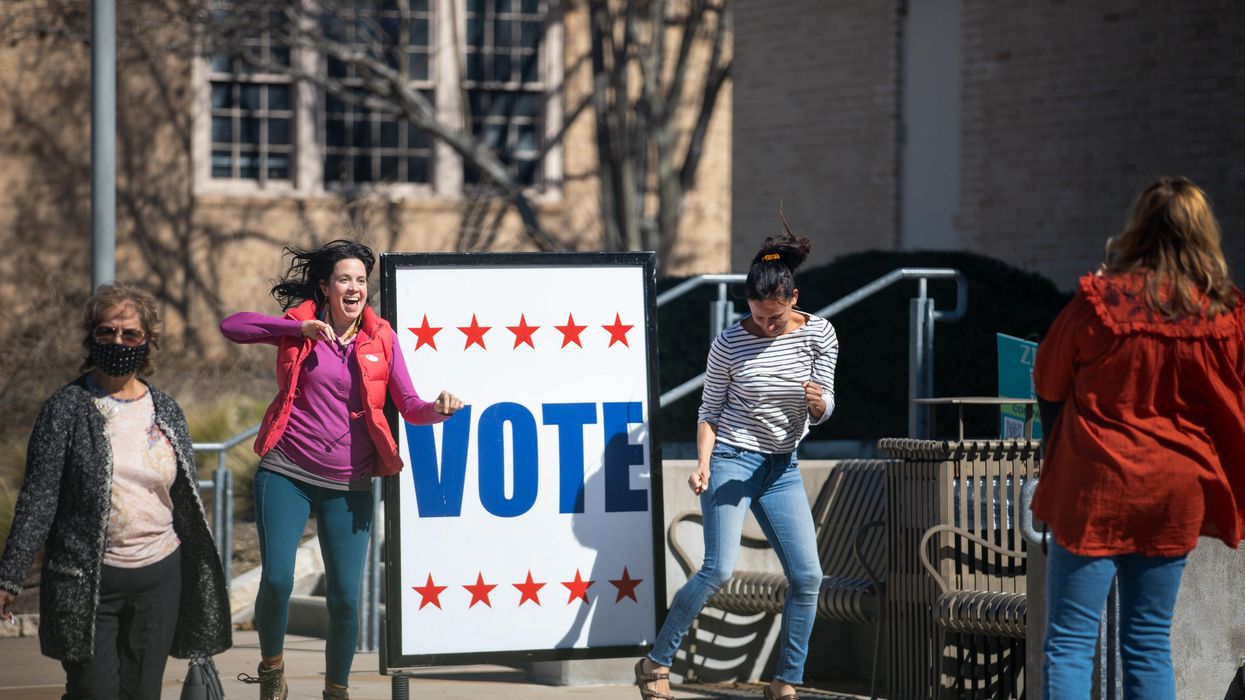Zaidane is the president and CEO of Millennial Action Project.
The 80/20 rule, also known as the Pareto Principle, is a philosophy that says 80 percent of outcomes are derived from about 20 percent of activities. In business, it’s a positive and simple way to project investments and the productivity of a sales team.
In our democracy, the Pareto Principle is not a good thing.
According to a recent report, due to population dynamics and extreme partisan gerrymandering, 83 percent of congressional seats were decided by only 10 percent of eligible Americans. This powerful minority of citizens vote in primary elections. This year, over 80 percent of people did not vote in the Texas primary, meaning fewer than one in five eligible voters in Texas partook in the democratic process.
As state legislatures finish redistricting and set the political landscape for the next 10 years, it’s imperative to discuss primary reform. Not only to combat hyperpartisanship but also to increase civic participation, ensure more diverse candidate pools, and ultimately represent leadership with various experiences and points of view necessary to write effective policy and better serve the American public.
Problematically, primary voters do not reflect the demographics and ideology of the general population. For example, early primary and caucus states like Iowa, New Hampshire, Nevada and South Carolina represent less than 4 percent of the U.S. population in presidential election years. They also underrepresent the country’s ethnic diversity, yet traditional pundits consider these states indicative of a candidate's overall strength. Furthermore, at a local level, Democratic and Republican primary voters skew older than the population in their neighborhoods and districts despite people under 40 and political Independents ranking as the largest groups in the United States. In comparison, only 7 percent of members of Congress and 5 percent of state legislators are millennials. As a result, this increases polarization because the status quo maintains its power, the most extreme candidates are pushed forward to general elections, and leaders don’t necessarily reflect the communities they serve.
The case for examining our primary system is clear. From gerrymandering to low participation, primaries can often be the nursery for democratic upheaval and unrepresentative outcomes.
Thankfully, several states are setting aside political differences and working toward systematic reform of their primary elections. At the Millennial Action Project, we believe that higher engagement among voters and elected leaders — especially young ones — can facilitate opportunities for creative problem-solving to policy issues across partisan and generational lines. Here are two initiatives worth considering:
Blanket, nonpartisan and open primaries
It’s projected that 11 million registered independent voters are excluded from primary elections due to closed systems. But not every state conducts a closed primary.
Nebraska has been using “blanket primaries” for its unicameral legislature since 1937. All candidates, regardless of party, run together in one large primary and the candidates who receive the most votes proceed to the general election, with some states allowing the top two, top four or even top five candidates to advance.
The state of Washington has been using this process for congressional, state and local elections since 2008. In 2010, California, the nation’s most populous state, followed with almost an identical system. Most recently, Alaska implemented a blanket primary system in 2020. Advocates cite an increase in candidates and turnout among independent voters when primaries are open to all voters.
Ranked-choice voting
Reforms like ranked-choice voting also put power back in the hands of the people. By removing the all-or-nothing approach in our current system, we see opportunities for consensus candidates, innovative policy ideas and coalition building.
In an RCV election, voters rank their candidates in the preferred order. However, suppose no candidate receives a majority of votes. In that case, the candidate with the least number of votes has their ballots redistributed to voters’ second- or third-rank candidates until a candidate has secured a majority. New York City’s 2021 primary analysis revealed that campaigns altered their strategies to build coalitions beyond traditional voter bases.
Additionally, voting patterns told a story in a traditional voting system. For example, Eric Adams, now mayor, won the majority of head-to-head matchups against all candidates; however, there were instances in which he was listed as a second-choice to non-institutional candidates like Andrew Yang and doubled his support. In addition, there were clear preferences for the women candidates in specific neighborhoods. The Board of Elections reported increased voter turnout, with nearly 1 million residents participating in the RCV election compared to 770,000 voters eight years prior.
Political polarization gives an illusion that society is more divided than we are. In fixing how we do primaries, we change who participates in our civic systems and create a democracy that works better for us all.




















Trump & Hegseth gave Mark Kelly a huge 2028 gift